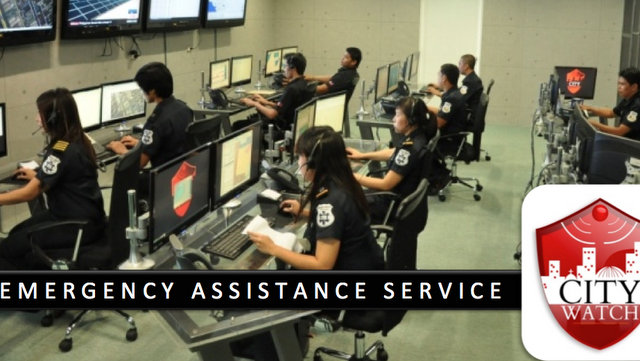SUMMARY
This is AI generated summarization, which may have errors. For context, always refer to the full article.

MANILA, Philippines – They saw an opportunity in a deadly disaster.
In 2009, at the height of typhoon Ondoy, one of the employees of Ruel Kapunan got stuck in the floods in Antipolo for 8 hours.
That time, Kapunan’s company, Snaptech Inc., was engaged in tracking the safety of trucks and cargo of private companies. They monitored the movement of trucks through GPS or the global positioning system, which provides information on time and location.
If something went wrong – the trucks were hijacked or there was an accident — it would be easy for the police to locate them because of the GPS.
Kapunan realized that if they can help authorities “rescue” trucks and equipment, they should also be able to help in rescuing people. “It’s time to reinvent business,” he thought to himself.
This realization pushed Kapunan to develop Citywatch, which helps saves lives in two ways – one, its core business includes assisting people during fire, medical emergencies and disasters. Two, its corporate social responsibility is related to its core operations. Citywatch sends a rescue team to areas struck by tragedies and disasters.
Pinoy 911
In the United States, people call 911 for emergencies. In the Philippines, there is 117. But as Kapunan asked – “when something’s wrong, do you call 117? No. You call your family, a friend, someone you know,” he said.
This is because it’s either people are not aware of the 117 hotline, or they are wary authorities might not be able to provide the necessary response on time. Some also, unfortunately, make a joke out of the services, as out of 13, 000 calls, only two percent are legitimate – the rest are prank calls, Kapunan said.
Kapunan also cited a common practice among Filipinos – they would not call doctors or go to the hospital unless the situation had already turned from bad to worse, or when it’s too late.
What Citywatch does is provide a 24/7 hotline, which its clients can access when they need medical help or assistance in times of disasters, such as fire and natural disasters. Individual subscribers only pay P500 a year, while a family of 5 could avail of the P1,000-annual package. (Editor’s note: For inquiries, call 836-5850. You may also visit www.citywatch.ph for more information)
Citywatch has “call takers” or registered nurses, who “attend” to the needs of their clients. The nurses are able to tell callers how to apply first aid or handle ailments, based on the symptoms described to them.
The setup of Citywatch responds to the economic reality that new nurses have found themselves in – because it’s hard to immediately land jobs or get hired abroad, they find themselves unemployed. Hence they often try their luck in the business process outsourcing industry.
Some apply as medical transcriptionists and medical secretaries, while some become call center agents.
Hence, Kapunan said it’s not hard for them to find nurses who have call-center experience. He said they match the salary of call center agents, which according to the Department of Labor and Employment ranges from P12,000-P25,000.
The call takers – registered nurses – would advice the callers if they need to be taken to the hospital or not. If they do, Citywatch will provide them with a private ambulance.
Kapunan clarified though that they will only give the ambulance to those who really need it. There are instances when people may cry of pain, but this could be addressed and taken care of even within the confines of their homes. The registered nurses would tell them how.
For those who need assistance from fire and disasters, Citywatch dispatches a search and rescue team. Citywatch utilizes its wide network of nongovernment organizations, volunteer groups and linkages with the Philippine National Police and the Armed Forces of the Philippines for it to immediately send responders.
“We never work alone,” he said.
Citywatch is also starting to become a fixture in events. Aside from extending medical relief over the phone so to speak, their team provides the same on the ground.
The company has been hired by different firms to provide medical and emergency assistance in outdoor events, competitions and others.
Business philosophy
As part of its CSR, the company sends a rescue squad composed of 8 people to places hit by natural disasters.
Citywatch participated in search-and-retrieval missions in New Bataan, Compostela Valley, where over 400 people died when typhoon Pablo ravaged the area and other parts of Mindanao in December 2012.
Citywatch also conducted trainings on disaster and risk management awareness and proper water crossing techniques, which is essential in traversing floodwaters.
Kapunan said they will not scale down their CSR programs no matter what happens, as opposed to what other firms would in the face of financial setbacks.
“The business is to support the philosophy,” he said. And the philosophy is to be of service to others. – Rappler.com
Add a comment
How does this make you feel?
There are no comments yet. Add your comment to start the conversation.